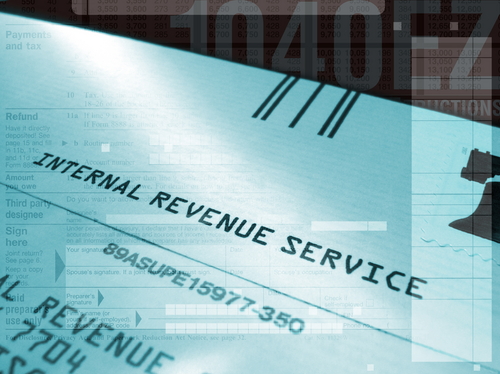One of the last things most people think about when preparing for retirement is the federal tax bite that will come out of their retirement income. Smart people understand that planning in advance represents a critical component of making adequate preparation for your retirement.
The value of a having a solid approach to retirement savings and federal taxes cannot be overestimated. It can save you money and ensure you experience your desired retirement lifestyle.
Here are some tips to help you minimize federal taxes during your retirement years.
Diversify retirement assets
Future tax rates can change according to the dictates of politicians in Washington, D.C. Case in point, at the beginning of the year, the tax rate for certain wealthy individuals increased from 35% to 39.6%.
To avoid the pain of uncertainty, most tax planning professionals advise their clients to diversify retirement assets in a mix of taxable, tax deferred, and tax-free accounts. Diversification helps you better withstand various risks and manage your retirement cash flow.
Retirement savings taxation
Federal tax obligations on your retirement income can become complicated because the taxes depend on the type of retirement savings account. In preparation for retirement, speak to a tax planning professional to evaluate where you are and your retirement needs. Work out a strategy for minimizing taxes and keep more money to fund your desired retirement lifestyle.
Each year, the federal tax rate will change depending on how much income you receive from any of the following sources:
- Annuities
- Traditional Individual Retirement Accounts (IRAs)
- 401(k), or 403 (b)
- Pension income
- Post-retirement part-time or full-time work
- Social Security entitlement
- Dividends
- Investment income
- Other income
Taxes on the accounts depend on the sources of income and your income tax rate. This encompasses money withdrawn from traditional IRAs and the majority of other employer retirement plans.
Learn as much as you can about the tax obligations as they relate to each asset. For example, your Social Security income can be tax-free or you find yourself in a tax bracket that requires you to pay taxes on as much as 85% of the benefits you receive.
Compared to traditional IRAs, you do not have to pay taxes on income from Roth IRAs, but the rules require you to begin withdrawing the money at age 59-1/2.
Planning pension taxation
Usually, your company withholds taxes from your pension check in the same way as they did with your paycheck. You can expect your pension to be taxed based on your current federal income tax rate.
When you pick your pension payout method, you can also choose whether to have taxes taken out of your check. After the first year, evaluate the situation to determine if you need to adjust the amount taken from your pension check.
Some people pay their federal tax quarterly. This approach provides more flexibility as retirement income and tax deductions may fluctuate.
One of the last things most people think about when preparing for retirement is the federal tax bite that will come out of their retirement income. Smart people understand that planning in advance represents a critical component of making adequate preparation for your retirement.
The value of a having a solid approach to retirement savings and federal taxes cannot be overestimated. It can save you money and ensure you experience your desired retirement lifestyle.
Here are some tips to help you minimize federal taxes during your retirement years.
Diversify retirement assets
Future tax rates can change according to the dictates of politicians in Washington, D.C. Case in point, at the beginning of the year, the tax rate for certain wealthy individuals increased from 35% to 39.6%.
To avoid the pain of uncertainty, most tax planning professionals advise their clients to diversify retirement assets in a mix of taxable, tax deferred, and tax-free accounts. Diversification helps you better withstand various risks and manage your retirement cash flow.
Retirement savings taxation
Federal tax obligations on your retirement income can become complicated because the taxes depend on the type of retirement savings account. In preparation for retirement, speak to a tax planning professional to evaluate where you are and your retirement needs. Work out a strategy for minimizing taxes and keep more money to fund your desired retirement lifestyle.
Each year, the federal tax rate will change depending on how much income you receive from any of the following sources:
- Annuities
- Traditional Individual Retirement Accounts (IRAs)
- 401(k), or 403 (b)
- Pension income
- Post-retirement part-time or full-time work
- Social Security entitlement
- Dividends
- Investment income
- Other income
Taxes on the accounts depend on the sources of income and your income tax rate. This encompasses money withdrawn from traditional IRAs and the majority of other employer retirement plans.
Learn as much as you can about the tax obligations as they relate to each asset. For example, your Social Security income can be tax-free or you find yourself in a tax bracket that requires you to pay taxes on as much as 85% of the benefits you receive.
Compared to traditional IRAs, you do not have to pay taxes on income from Roth IRAs, but the rules require you to begin withdrawing the money at age 59-1/2.
Planning pension taxation
Usually, your company withholds taxes from your pension check in the same way as they did with your paycheck. You can expect your pension to be taxed based on your current federal income tax rate.
When you pick your pension payout method, you can also choose whether to have taxes taken out of your check. After the first year, evaluate the situation to determine if you need to adjust the amount taken from your pension check.
Some people pay their federal tax quarterly. This approach provides more flexibility as retirement income and tax deductions may fluctuate.





